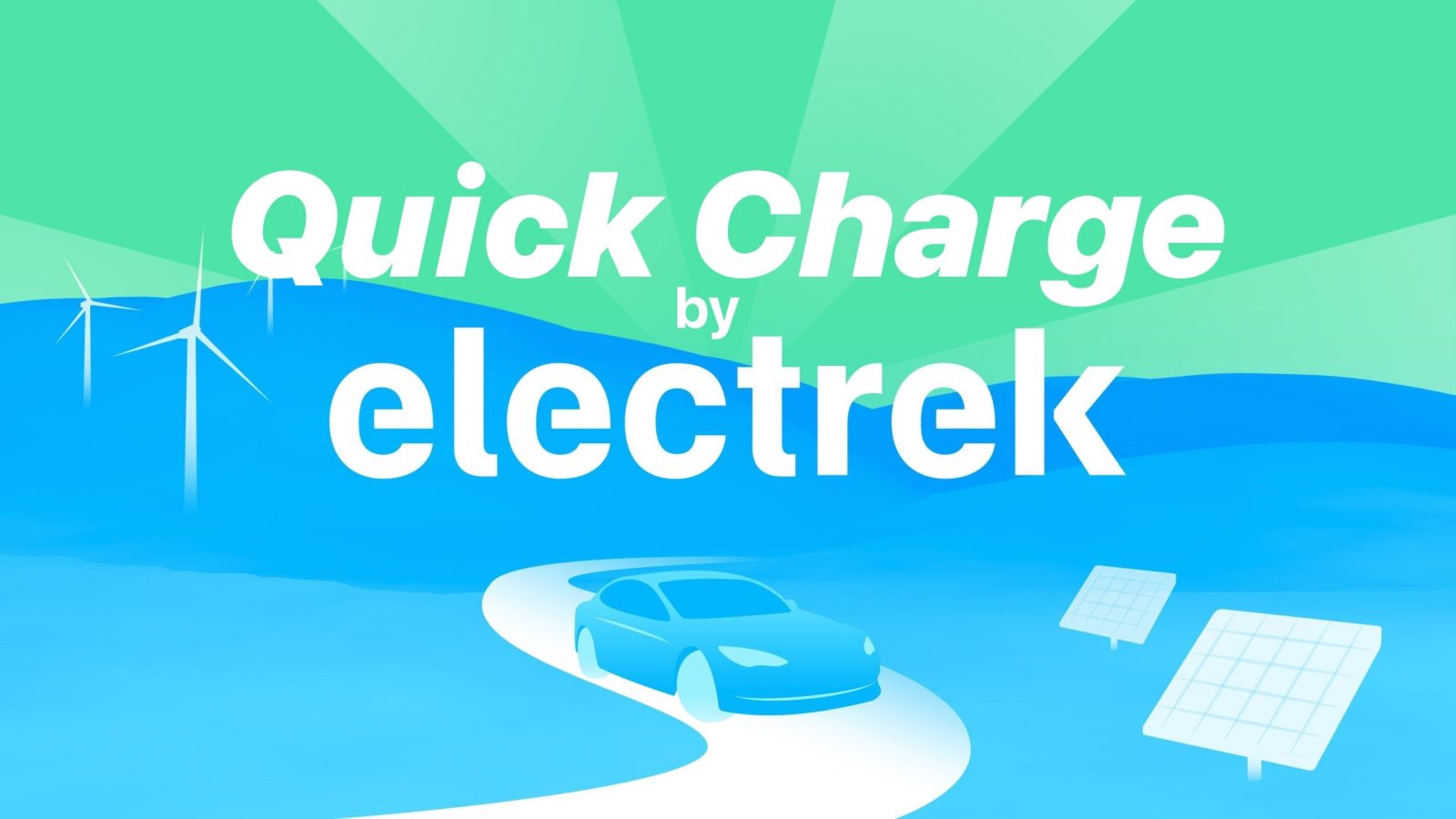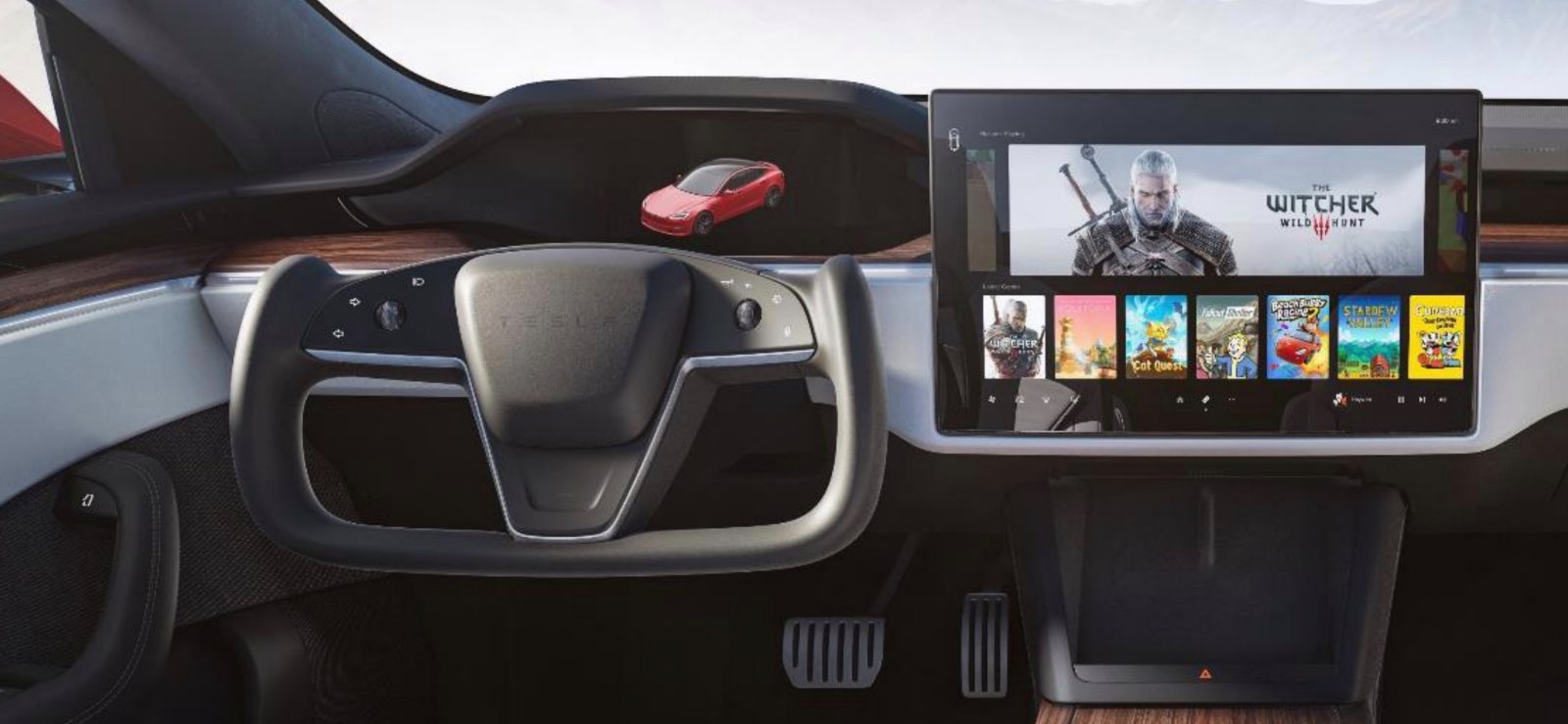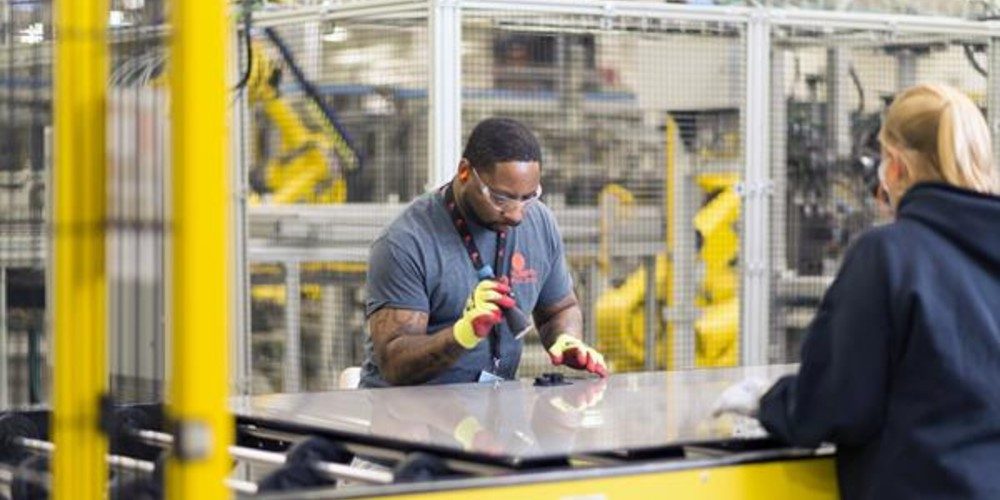The 611hp, 5,531lb electric SUV tops out at 250 km/hr.
Source: Electric Vehicle News
Quick Charge Podcast: June 9, 2021

Listen to a recap of the top stories of the day from Electrek. Quick Charge is available now on Apple Podcasts, Spotify, TuneIn and our RSS feed for Overcast and other podcast players.
The post Quick Charge Podcast: June 9, 2021 appeared first on Electrek.
Source: Charge Forward
New CarGurus survey shows rising consumer interest in EVs
Over the years, we’ve seen many surveys of consumer sentiment about EVs, but this one feels different. E-mobility has been getting a lot of press lately, and consumers, auto dealers and automakers are a lot better informed than they were a year or two ago.
In February 2021, CarGurus surveyed 1,097 automobile owners in the US, as well as an unspecified number in in Canada and the UK. The questions asked are more pertinent than those we’ve typically seen in past surveys, and the answers are more encouraging than ever.
The big question is, of course: How many consumers are thinking about buying an EV? Of CarGurus’ respondents, 30% said they would probably own an EV in the next 5 years, and 52% in the next 10 years. This figure has risen sharply—in 2018, only 15% of respondents said they would probably go electric in the next 5 years.
Some of the findings are what you’d expect: 65% of respondents cited “more charging stations available in my area” as the main factor that would encourage them to buy an EV; current EV owners skew male, young, affluent, urban and tech-savvy; most buyers (67%) want SUVs and crossovers; Tesla is by far the most trusted EV brand (36% said it was the most-trusted company to develop EVs), followed by Toyota (14%).
Other conclusions are more surprising—pleasantly so. Most of CarGurus’ respondents seem to understand that hybrids represent a transitional technology: equal numbers said they were likely to own a hybrid or a pure EV in the next year, but when the timeline is extended to 10 years from now, 52% see themselves in an EV, compared to only 36% in a hybrid. Also, contrary to what many believe, most EVs are not second cars—75% of electric drivers said their EVs were their primary vehicles, even though 48% of them also own a gas or diesel burner.
There’s a lot of interesting info in the report, and it’s worth reading in its entirety, especially for those in charge of marketing for auto manufacturers or retailers. And for policymakers? No surprise here: “Building charging stations is the most effective solution for speeding up EV adoption.”
CarGurus isn’t the only organization to report rapidly rising consumer interest in EVs. Recent surveys from Consumer Reports and J.D. Power found similar trends.
Source: CarGurus
Source: Electric Vehicles Magazine
SparkCharge unveils next-gen mobile EV charger and new monthly charging offer
SparkCharge, the provider of a novel mobile charging service, has released a next-generation mobile charging system, the RoadieCCS, as well as ChargeUp, a new charging delivery service, that “promises to charge a vehicle wherever it is for just $25 per month.”
“Being able to have your EV charged whenever and wherever you’d like takes away the time wasted at chargers, and eliminates the worry of finding a charger that isn’t out of order,” said Josh Aviv, SparkCharge’s CEO and founder. “We’ve focused solely on making charging as easy as possible, from building the portable charging hardware to mobilize charging and the software to make it easy to access.”
SparkCharge says that its new charge delivery service, ChargeUp, “is available to EV drivers as a $25 subscription. Subscribers receive DC fast charging delivered to their vehicles at their homes, office parking lots, street parking or wherever their vehicles are.”
“It’s been really fun to see the reaction of people when they learn that they can have someone come to their car and charge it all month for only $25,” says Aviv. “Most people pay more than that in a week at a public charging station and twice that for a month of home charging.”
“People living in apartments and condos can now own an EV without having to convince the property owners to install stationary chargers,” said VP of Marketing Joshua Rapoza. “We’ve even had property management companies and auto dealers offering to pay for the service for their customers.”
The heart of the company’s system is the RoadieCCS, a portable charging system that consists of stackable modules. “We’ve spent hours listening to our partners and understanding their struggles and needs. All of that learning was then focused on the development of the RoadieCCS,” says Aviv. “We made it easier to carry, stack, and have added IoT connectivity to allow owners to gather important information like state of charge, geographic location, wattage delivered, and more.”
“We have done more than create a mobile charging network,” Aviv concludes. “We’ve created an entirely new concept: Charging as a Service (CaaS). It’s convenient, completely independent of current infrastructure, and is exactly what EV owners deserve: freedom.”
Source: SparkCharge
Source: Electric Vehicles Magazine
Tesla battery supplier CATL planning a large new plant in Shanghai
Chinese battery manufacturer CATL is planning a major new automotive battery plant in Shanghai as it sets “a blistering pace of expansion that will cement its lead as the world’s number-one supplier,” unnamed sources have told Reuters. No timeline has been revealed.
Tesla appears to be very much a part of CATL’s growth strategy. The Chinese battery builder began supplying cells for the California carmaker’s Model 3 in China last year. With a new production facility near Tesla’s Shanghai Gigafactory, CATL will be in a position to rapidly expand the relationship. A senior source at CATL told Reuters that the company aims to provide half of the battery cells Tesla uses globally, both for vehicles and energy storage products.
The new Shanghai plant is expected to have a capacity of 80 GWh per year, enough to power some 800,000 EVs. CATL is said to have around 69 GWh in current production capacity and another 77.5 GWh under construction.
CATL is not the only battery maker that’s quickly ramping up production. In April, Tesla appealed to its suppliers to produce as much as possible. LG Energy Solution has announced plans to invest more than $4.5 billion in its US battery production over the next four years.
Source: Reuters
Source: Electric Vehicles Magazine
FCC Medio Ambiente and Irizar to begin production of electric refuse trucks
Spanish bus manufacturer Irizar and refuse collection firm FCC Medio Ambiente have partnered to produce Irizar ie electric refuse collection trucks. The two companies have conducted tests of the new trucks in several European cities, with “excellent results,” and the first 10 units will now go into production.
The first 10 units will include 4×2 and 6×2 two- and three-axle versions of the Irizar ie urban truck. Irizar says this 100% electric truck offers 50% less energy consumption than a legacy vehicle. Its silent operation and lack of emissions make it ideal for working in urban areas early in the morning or at night, and allow it to operate in the low-emission areas that are being established in a number of European cities.
The Irizar ie urban truck incorporates electrical traction, energy storage, and control electronics technology developed in-house by the Irizar Group. The driver’s cabin is designed for easy access, safety, and an optimal field of vision, and features an ergonomic control layout for maximal driver comfort.
Source: Irizar
Source: Electric Vehicles Magazine
Munro & Associates Begins Ford Mustang Mach-E Teardown
We are eager to see the core EV components.
Source: Electric Vehicle News
Tesla is about to raise the bar with new Model S Plaid, expect a few surprises

Tesla is about to unveil the new Model S Plaid, arguably the biggest update to the vehicle program, which is already almost a decade old.
We expect that the automaker is going to unveil a few surprises that will raise the bar.
The post Tesla is about to raise the bar with new Model S Plaid, expect a few surprises appeared first on Electrek.
Source: Charge Forward
Largest US solar manufacturer to double its production with a new factory

First Solar, the largest US-owned solar panel manufacturer, today announced that it’s opening a third manufacturing plant in Ohio in the first half of 2023.
The post Largest US solar manufacturer to double its production with a new factory appeared first on Electrek.
Source: Charge Forward
Watch Aptera Bare Its Sol In New Video
You won’t want to miss the integrated tent option.
Source: Electric Vehicle News





